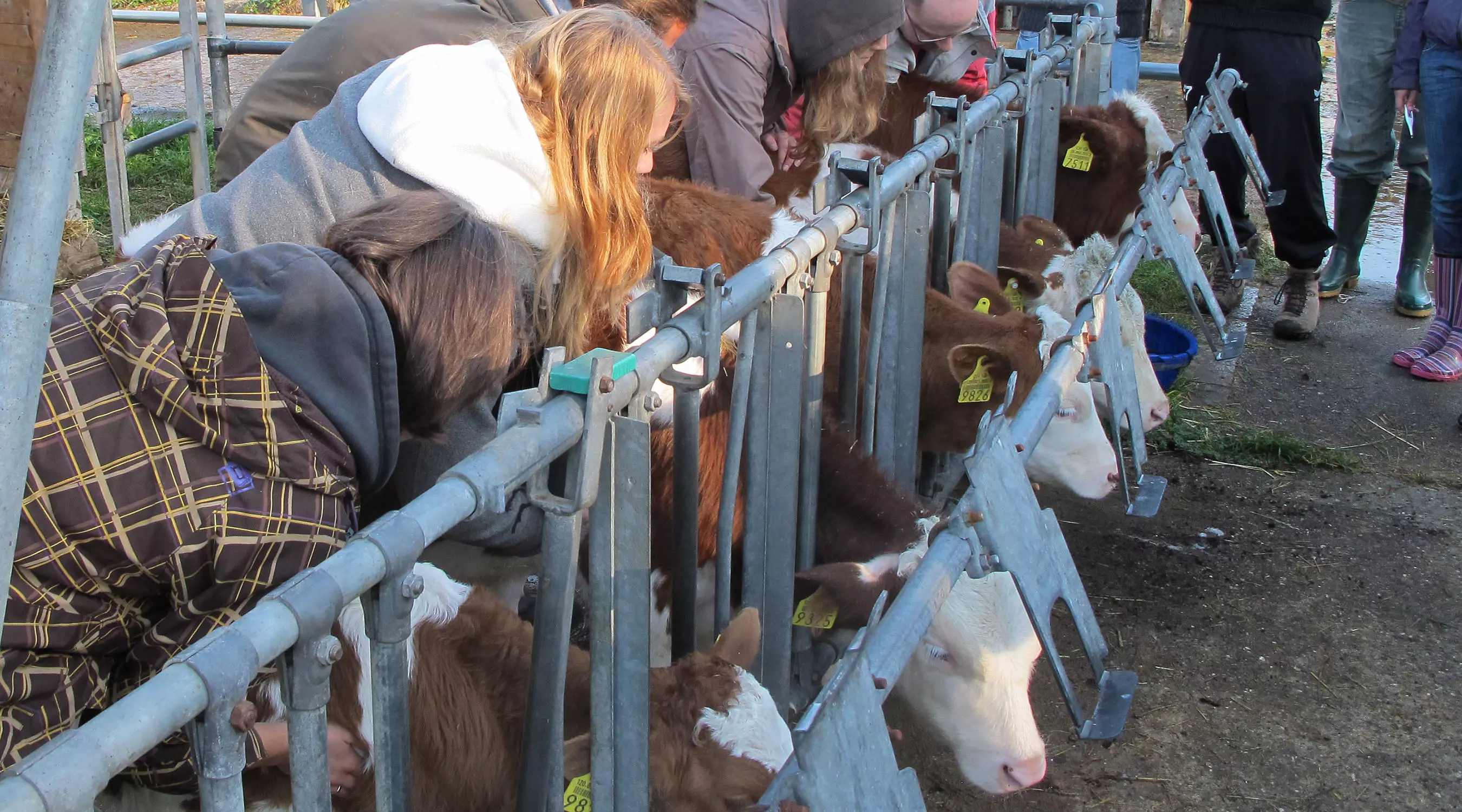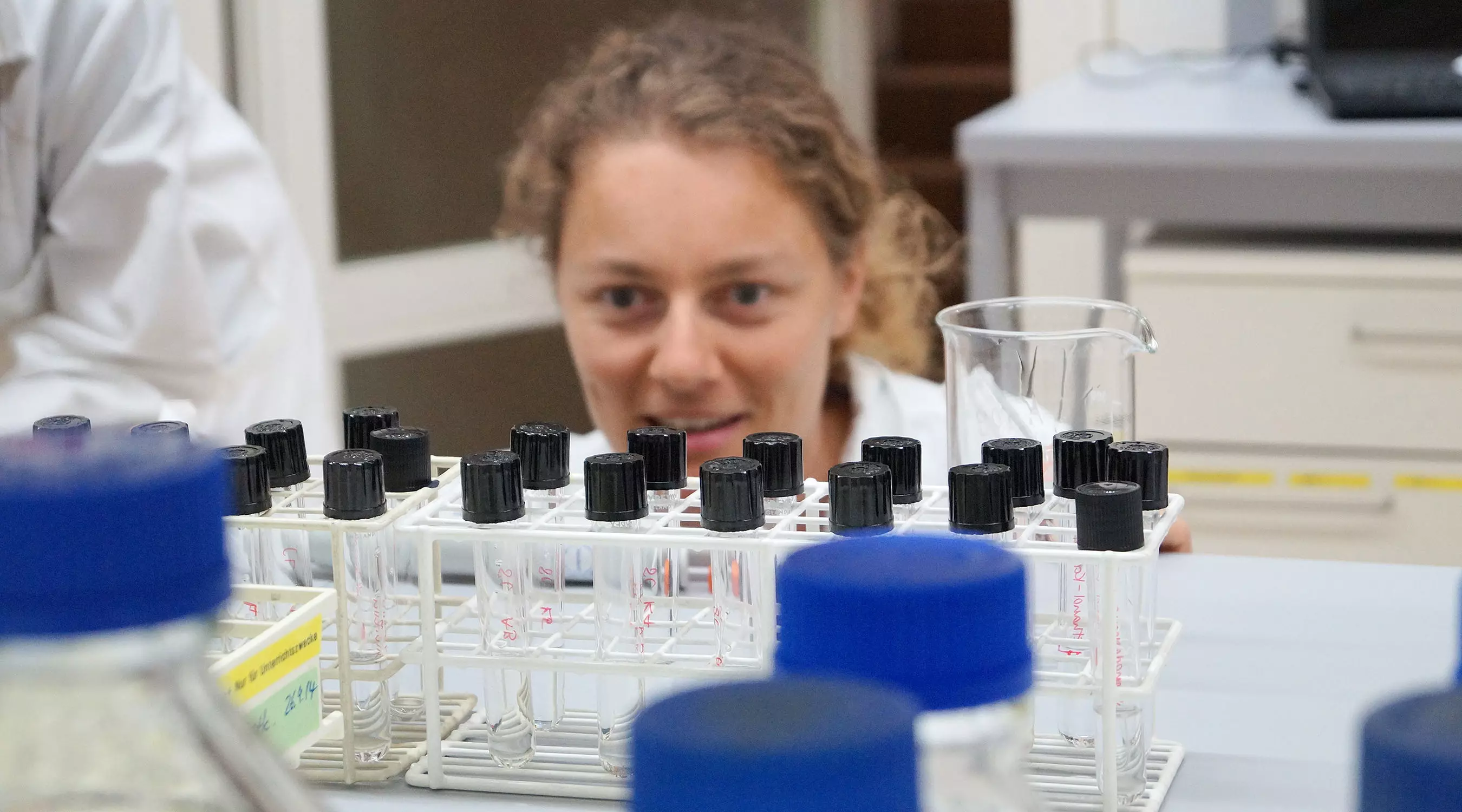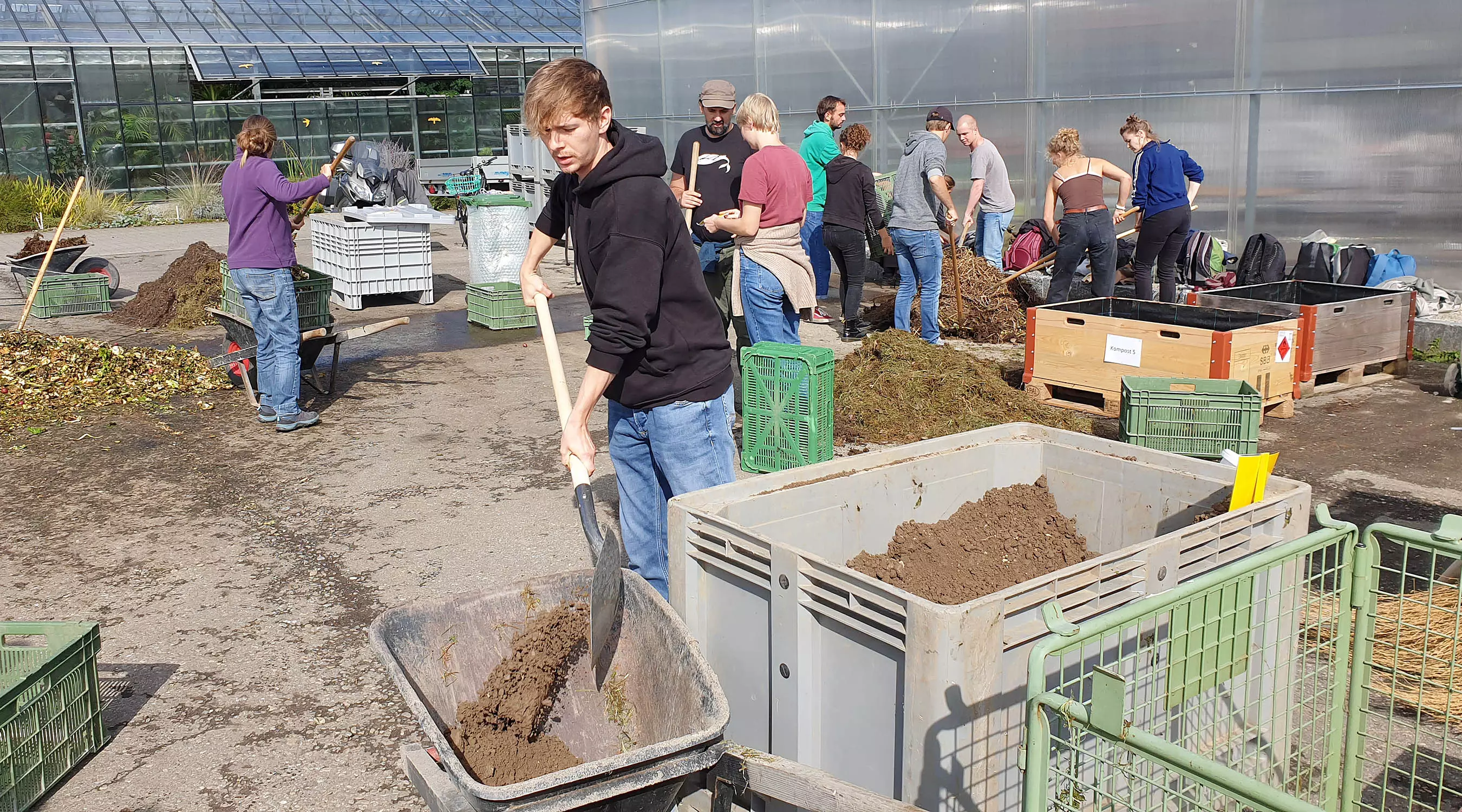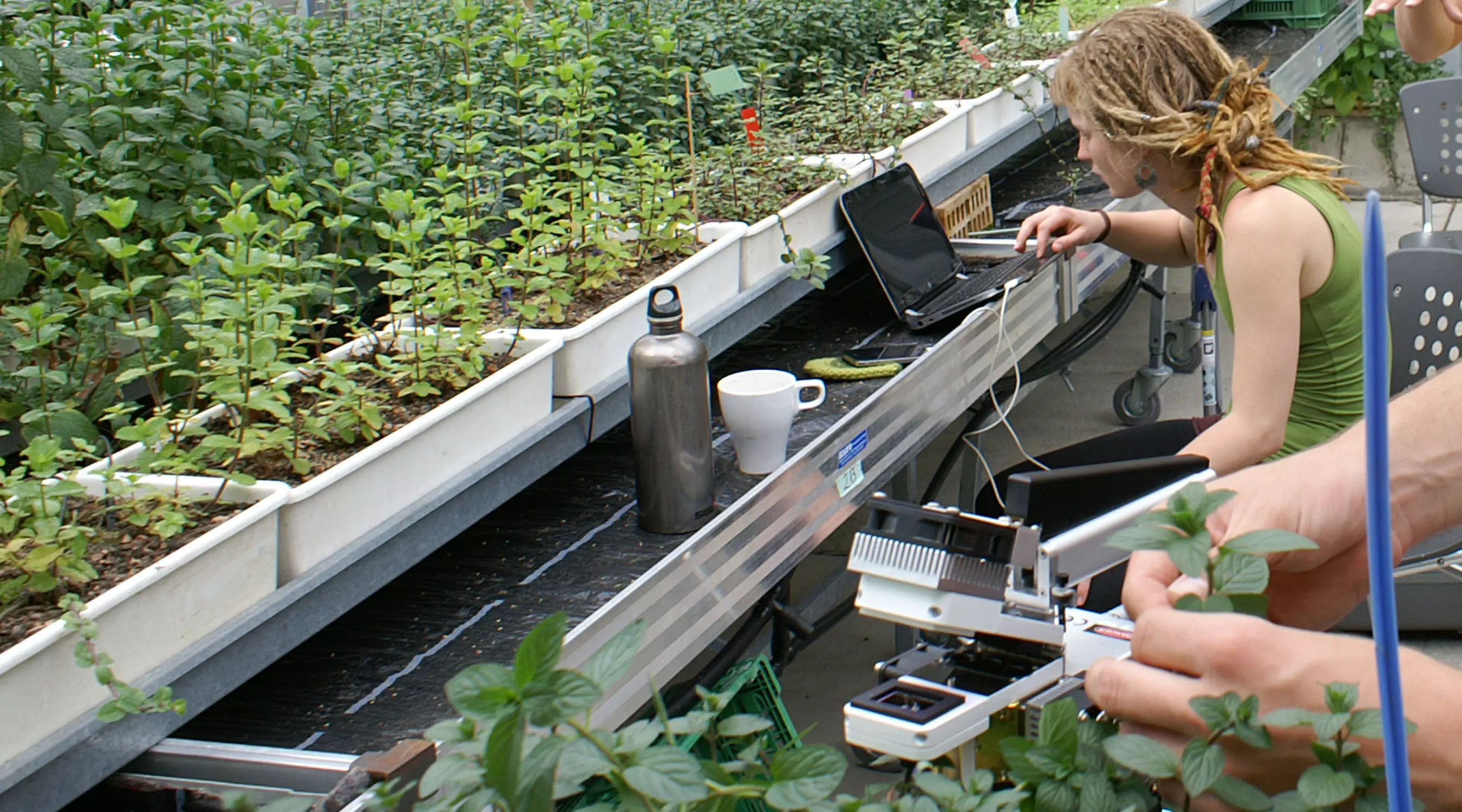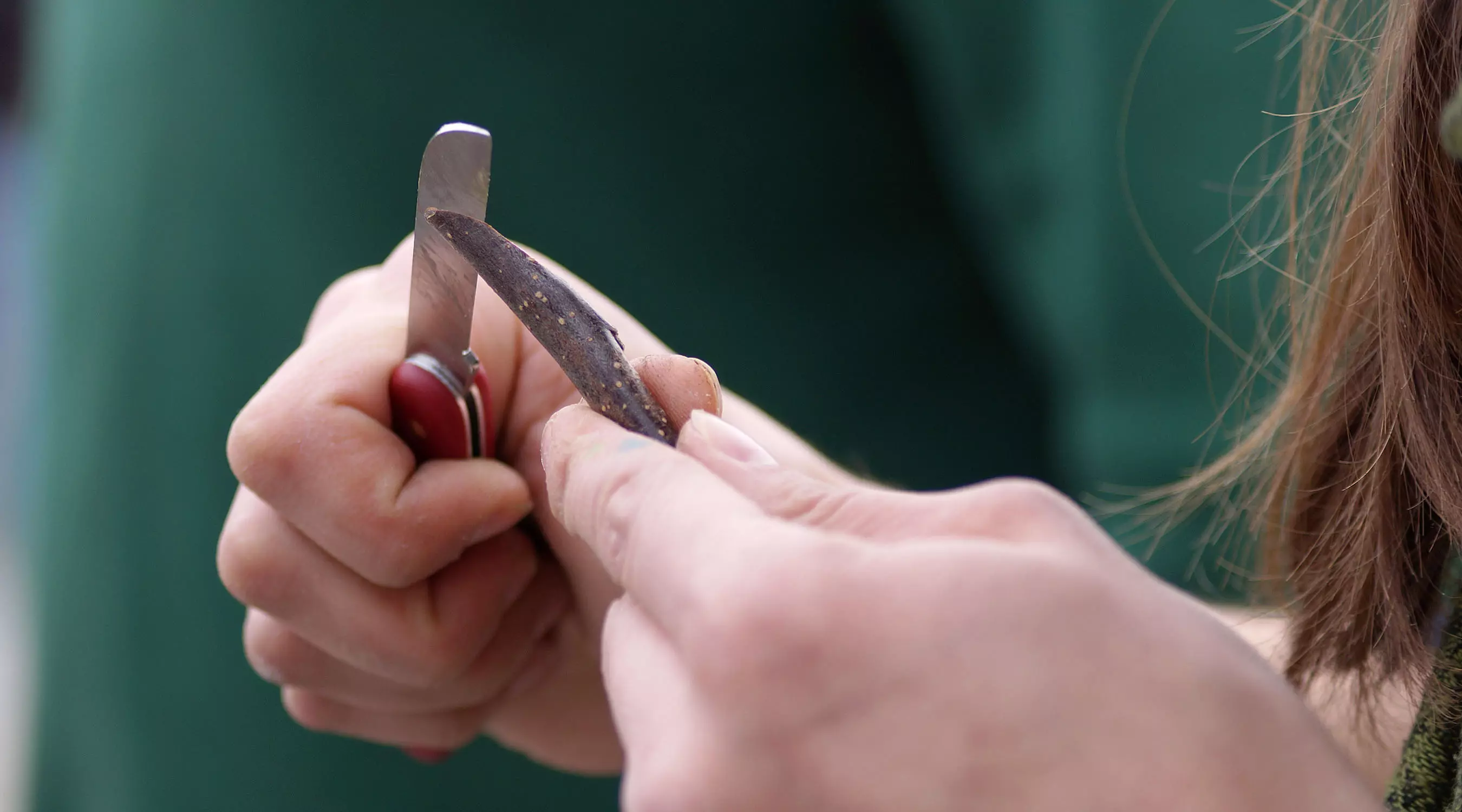Study and continuing education in organic farming and horticulture
The Horticulture Research Group is involved in teaching at both degree and continuing education levels. As part of the Environmental Engineering (UI) Bachelor’s programme, the Research Group is responsible for the Organic Agriculture and Horticulture (BLH) specialisation. In the Master of Science in Environment and Natural Resources, students are fully integrated into the Research Group and have the opportunity to participate in innovative research projects.
Bachelor's programme
In the Organic Agriculture and Horticulture (BLH) specialisation, students are able to adapt their learning paths according to their needs. More on learning goals, area of expertise, study guidance, etc. (in German)
Modules
Among others, the Horticulture Research Group is responsible for delivering the following modules:
Basics of Organic Agriculture and Horticulture 1 to 3
What does organic mean? In these three modules, in collaboration with Agroscope (Reckenholz, ZH) and FiBL (Frick, AG), we lay the foundation for what organic agriculture and horticulture really are: understanding soil, plant, and animal systems. More information about the modules (in German): GL1, GL2, GL3
Agricultural Marketing
Successful agricultural production should be consistently aligned with the market and its customers. How agricultural markets work and marketing strategies are both explored in this module. Practical training in sensory analysis and beverage production also provide an insight into the food industry. More information about the Agricultural Marketing module (in German).
Organic Horticulture 1 and 2
Organic products have to be fresh and healthy, rich in valuable ingredients and free of foreign substances. We plan resource-efficient farming systems for fruit, vegetables, vines and ornamental plants. More information about the modules (in German): BiHo1, BiHo2
Bachelor's theses
The following Bachelor’s theses have been completed under the guidance of the Horticultural Research Group:
- Florian Peyer (2022): 10 Jahre Bio: Entwicklung der Bodenfruchtbarkeit nach 10 Jahren Verzicht auf chemisch synthetische Hilfsstoffe(PDF 325,4 KB)
- Anne-Miamed Fehr (2021): Sustainable food production with biostimulants; Testing the effects of arbuscular mycorrhizal fungus R. irregulare and the bacteria B. amyloliquefaciens on plant growth and disease resistance(PDF 267,7 KB)
- Janusch Ittig (2019): Qualität der Entwollung von Nolanas in Abhängigkeit von verschiedenen Parameter(PDF 374,4 KB)
Overview of Bachelor's theses since 2013
Master's programme
In the future, agriculture should be environmentally friendly and resource efficient. However, only by cleverly utilising the existing synergies found in the natural environment and preserving existing means of production will it be possible to further develop farming systems for food production in this direction. The Horticulture Research Group investigates and develops possible solutions in the fields of soil fertility, peat-free substrates, resource-conserving farming systems and ways of monitoring specific harmful organisms.
Master's theses
In the Master of Science in Environment and Natural Resources, students are fully integrated into the Research Group for their Master's Studio (project work 1 and 2 as well as their Master's theses).
The following Master's theses or subject areas are available at the Horticultural Research Group:
- Qualitätssicherung von Kompost zur Herstellung gärtnerischer Substrate(PDF 37,6 KB)
- Mulchsysteme im Gemüsebau zur Reduktion des Pflanzenschutzmitteleinsatzes(PDF 42,3 KB)
- Wirkungsreaktion von Gemüse in Mischkulturen(PDF 37,2 KB)
- Pflanzenkohle aus unbehandeltem Holz als Zusatzstoff in Gärtnerischen Substraten(PDF 37,2 KB)
The following Master theses have been completed under the guidance of the Horticultural Research Group:
- Tatjana Weis (2022). Anzuchtversuche bei Gemüse mit torfreduzierten Substraten und Pflanzenstärkungsmitteln. Supervisor: Alex Mathis (ZHAW), Jürg Grunder (ZHAW) and Ralf Bloch (HNEE)
- Julia Eichmann (2016). Expression analyses of selected genes of Vitis vinifera during early infection stages of its major pathogens. Supervisor: Johannes Fahrentrapp (ZHAW) and Fabio Rezzonico (ZHAW)
- Irene Bühlmann (2016). Trapping Drosophila suzukii in different crops. Supervisor: Johannes Fahrentrapp (ZHAW) and Claudia Daniel (FiBL)
Continuing education
→ The language of instruction is German.
Wädenswiler Weintage

Die Fachtagung gliedert sich in einen Rebbautag und einen Weinbereitungstag. Die Weintage sind eine zentrale Fortbildung für Winzerinnen und Weintechnologen der Deutschschweiz. Passend auch für Beratungs- und Lehrpersonen, kantonale Fachstellenleiter, Wissenschaftlerinnen, Branchenvertreter und Interessierte.
Weinbaukurse
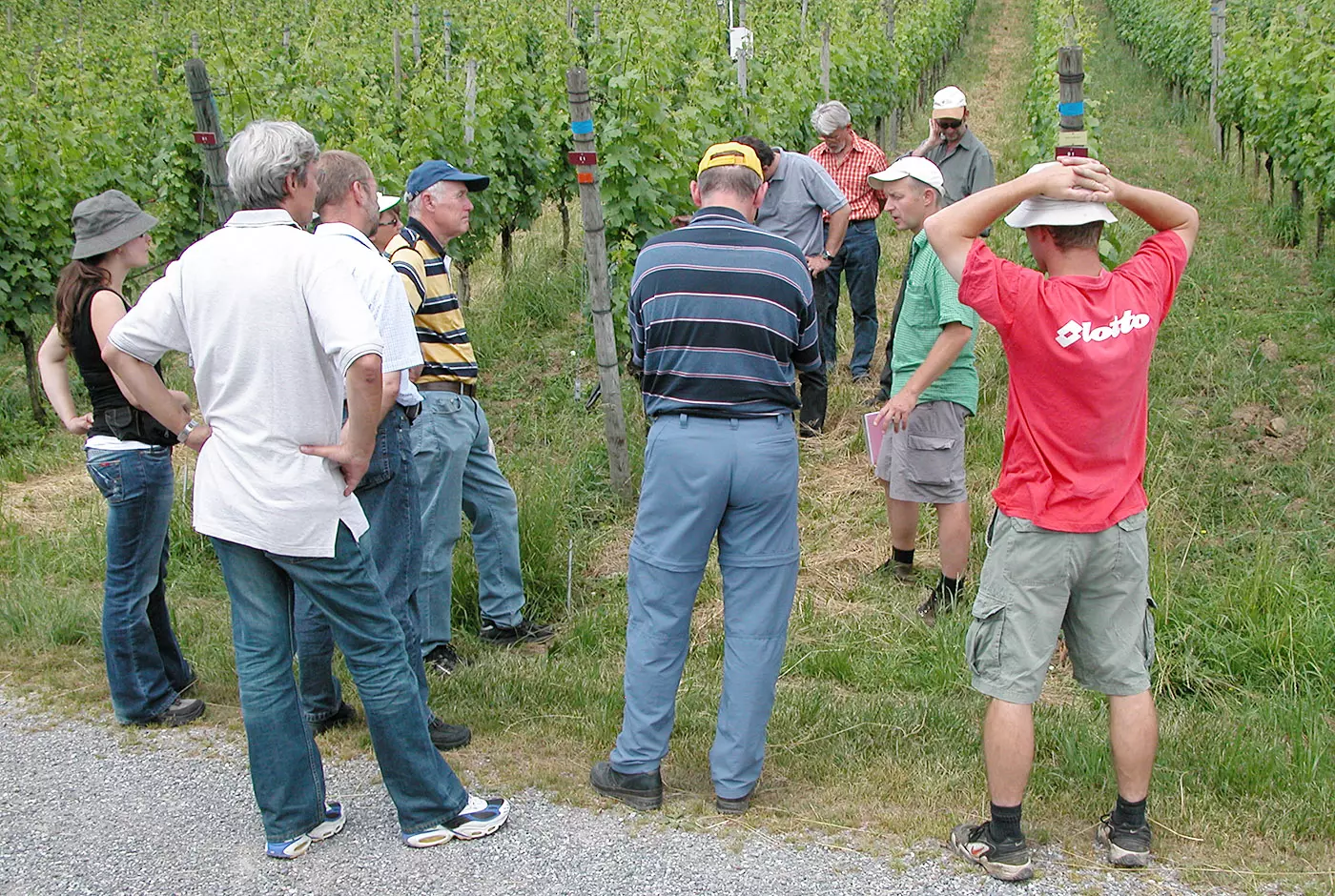
Die Weinbaukurse richten sich an Nebenerwerbs- und Hobbywinzer/innen, Hilfskräfte und Einsteiger, aber auch an Weinliebhaberinnen und -liebhaber, die mehr über den Weinbau erfahren möchten.
Der Kurs wird in Zusammenarbeit mit dem Weinbauzentrum Wädenswil angeboten.
Informationen und Anmeldung:
- Weinbaukurs – Weinbau in der Praxis (9 Tage)
- Weinbau – Vertiefungskurs (9-tägiger Weinbaukurs als Voraussetzung)
CAS «Food Quality Insight»
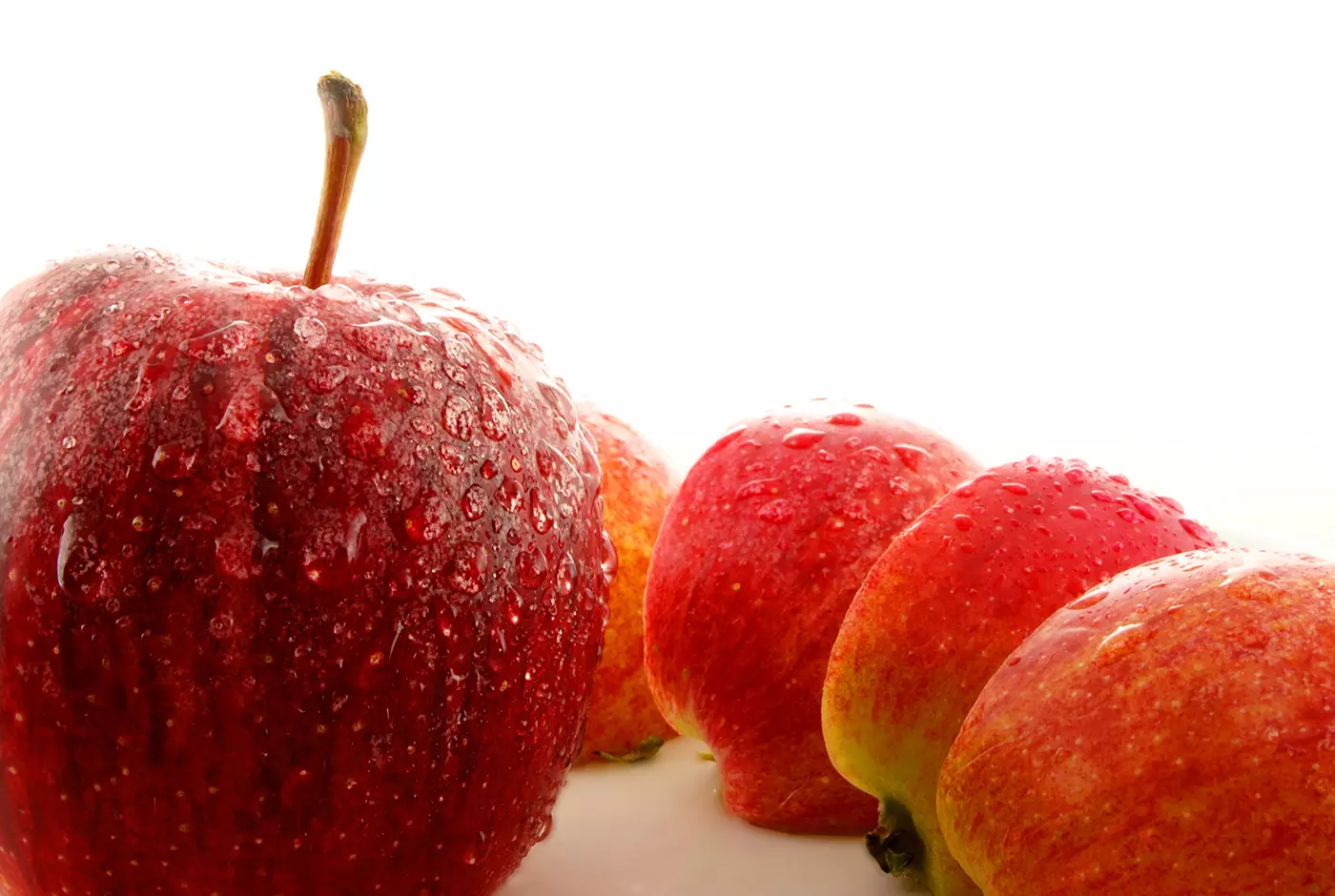
Die Module «Food-Rohstoffe und -Verarbeitung 1 und 2» wenden sich an Akteure, welche in der Verarbeitung und dem Handel von Nahrungsmitteln tätig sind. Wir zeigen die Herkunft und Vielfalt verschiedener Rohstoffe und den Einfluss von Anbau, Transport, Lagerung und Verarbeitung auf die Qualität. Der CAS wird in Zusammenarbeit mit dem Institut für Lebensmittel- und Getränkeinnovation ILGI durchgeführt.
This might also interest you
Study
A degree in natural resource sciences? Find out more about the contents and focal points.
Master ENR
Information on the Master of Science in Environment and Natural Resources (MSc ENR).
Continuing education
Find out about our wide offer on CAS and courses in continuing education.
Study
Master ENR
Continuing education
A degree in natural resource sciences? Find out more about the contents and focal points.
Information on the Master of Science in Environment and Natural Resources (MSc ENR).
Find out about our wide offer on CAS and courses in continuing education.
